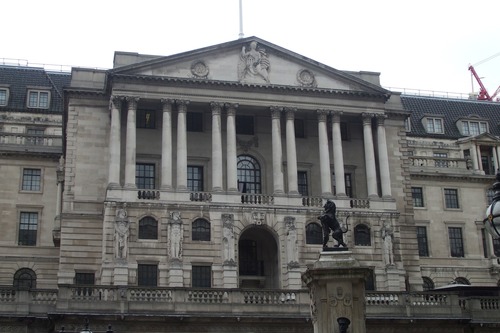41 000 décès liés au Covid-19 au Royaume-Uni
Le Royaume-Uni enregistre le pire bilan d’Europe avec 41 000 morts et une surmortalité totale de plus de 63 000 personnes. Selon plusieurs spécialistes, la principale explication vient du confinement instauré de manière trop tardive, le 23 mars.
Sur le plan économique, cette mise à l’arrêt s’est traduite par une récession historique. L’OCDE anticipe un recul du PIB de 11,5 % en 2020, soit une baisse équivalente à celles de l’Italie et de la France. L’ensemble des secteurs de l’économie britannique ont été impactés (construction, industrie, service…). Le commerce extérieur n’a pas été épargné, avec une chute des exportations et des importations. Les économistes s’attendent désormais à un effondrement du PIB au 2e trimestre qui pourrait atteindre 35 %.
La moitié des PME britanniques ont eu recours au PGE
Pour tenir le choc face au coronavirus, près de 300 000 petites entreprises britanniques ont eu recours au Prêt garanti par l’État. Le Royaume-Uni (34,8 milliards d’euros) se place ainsi derrière la France (93 milliards d’euros accordés à 490 000 entreprises) et l’Espagne (63,1 milliards d’euros). Les prêts limités à 50 000 livres (« Bounce Back Loan Scheme »), garantis à 100 %, ont été les plus demandés, avec 23,1 milliards de livres prêtés.
Interrogés par le Financial Times, plusieurs dirigeants de banques rapportent que 40 à 50 % des emprunteurs, ayant reçu en moyenne 30 000 livres chacun, pourraient ne jamais rembourser leur dû. Si les banques qui sont intervenues dans le cadre du PGE sont protégées par la garantie de l’État, celles-ci s’inquiètent des éventuelles poursuites qu’elles pourraient avoir à engager contre les entreprises défaillantes, d’autant plus qu’au moment de l’octroi de ces prêts, il leur avait été suggéré d’alléger leurs vérifications sur le profil des demandeurs afin d’accélérer les versements.
Une structure de type « bad bank » envisagée
Plusieurs acteurs appellent à la création d’une « bad bank » pour faire en sorte que les établissements soient capables de prêter lors de la période de reprise. Sajid Javid, ex-ministre des Finances de Boris Johnson, propose d’alléger les bilans des banques qui s’engagent à continuer de prêter aux entreprises et à soutenir l’économie.
De son côté, la Banque d’Angleterre, début mai, avait alerté les banques en indiquant qu’elles ne feraient qu’aggraver la situation en cherchant à endiguer leurs pertes et en réduisant les crédits.
